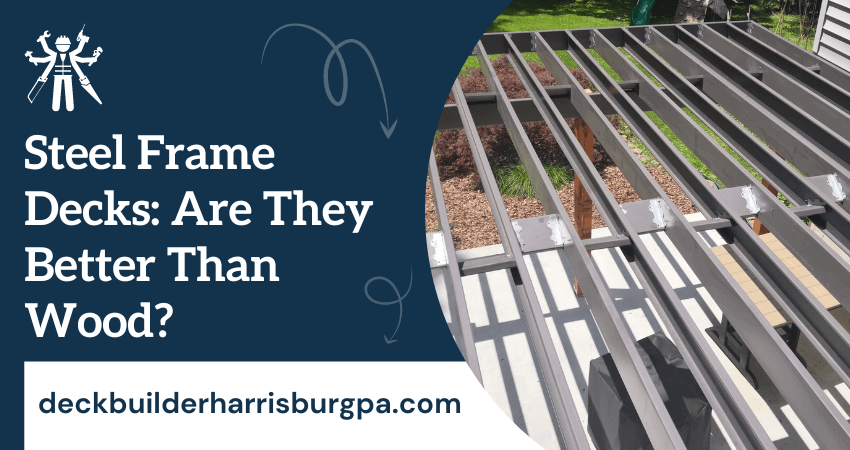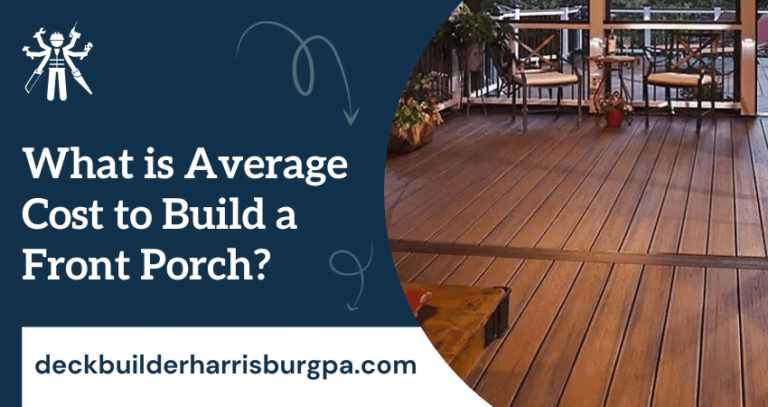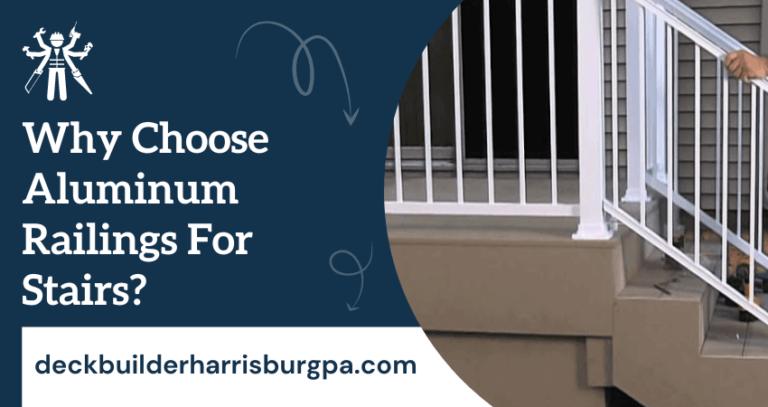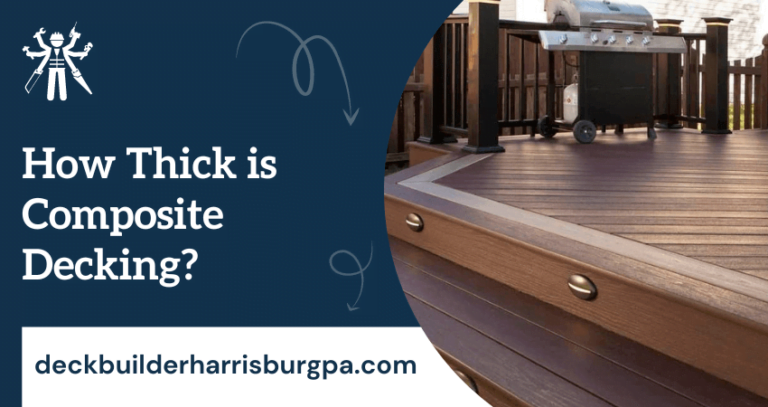Steel Frame Decks: Are They Better Than Wood?
Are you in the market for a deck upgrade? Have you heard of steel frame decks, but aren’t sure if they’re any better than traditional wooden decks? Steel and wood have been locking horns for years when it comes to constructing anything from underground bunker walls to simple backyard decks. Fortunately for homeowners, there’s no need to choose a side thanks to both materials having their own unique set of benefits.
In this post explore the pros and cons of steel frames versus wood framed decks so that you can make an informed decision about what type is best suited for your needs.
Steel Frame Decks
Steel frame decks are an increasingly popular option for homeowners looking to add a deck to their homes. Steel decks have several advantages over traditional wood frames, making them a great choice for outdoor living spaces.
Also known as composite decks, steel frame decks are made using galvanized steel joists and beams that provide support for the decking boards. This new technology has created a durable, low-maintenance solution to outdoor living spaces that is also fire-resistant and less susceptible to weather damage. Steel framing can also be designed in more intricate shapes, compared to wood framing, making it a great choice for curved decks and other unique designs.
On the other hand, steel framing is more expensive than wood and can be harder to install without some specialized knowledge or assistance. Steel also has a higher thermal conductivity than wood, meaning it absorbs and conducts heat more quickly than wood, making it less comfortable to walk on in hot weather.
Ultimately, the choice between wood and steel frame decks comes down to the specific design and budget of each homeowner. Steel can be a great choice for those looking for an ultra-durable, low-maintenance decking solution, while wood is more cost-effective and easier to work with.
Advantages of Steel Frame Decks
The following are the notable advantages of steel frame decks:
- Longevity and Durability: Steel frames are extremely durable and long lasting, making them a great option for outdoor structures that need to last for many years.
- Maintenance Free: Steel does not rot or warp like wood, meaning it requires less upkeep over time. Additionally, steel is impervious to termite damage, so there is no need for chemical treatments or other preventative measures.
- Fire Resistance: Steel frame decks are fire-resistant and will not burn easily, making them a great choice for homes in areas prone to wildfires.
- Design Versatility: Steel frames can be formed into various shapes and sizes, making them ideal for creative and intricate deck designs.
Disadvantages of Steel Frame Decks
The following are the notable disadvantages of steel frame decks:
- Cost: Steel frames are more expensive than wood and can require additional labor costs for installation.
- Weight: Steel is much heavier than wood, meaning it can be harder to transport and install in some cases.
- Thermal Conductivity: Steel conducts heat more quickly than wood, making it less comfortable to walk on in hot weather.
- Corrosion: Steel is susceptible to corrosion over time, so care must be taken to ensure that the frames are properly treated or sealed to prevent rust.
Comparison between steel frame deck and wood deck
Following are the points that show you the differences between a steel frame deck and a wood deck:
- Durability: Steel frame decks are much more durable than wood decks. They last for decades, whereas wooden decks can rot or be damaged due to moisture or other environmental factors.
- Maintenance: Steel frames require little maintenance and never need refinishing. Wooden decks may require sealants or other treatments to keep them in good condition.
- Cost: Steel frame decks are more expensive than wood, but they can save you money in the long run because they do not require refinishing or repairs.
- Aesthetics: While both types of decks look great when completed, steel frames tend to create a more modern, industrial look. Wooden decks often give a cottage-type feel.
- Installation: Steel frame decks require more time and skill to install than wood decks, as they must be precisely measured and cut using special tools. Wooden decks can be installed much more quickly with standard tools like saws and drills.
- Safety: Steel frame decks are extremely sturdy and resistant to damage, making them one of the safest deck materials available. Wooden decks can collapse if not properly maintained or constructed.
- Environmental Impact: Steel frame decks have a smaller environmental impact than wooden decks as they require fewer resources to produce and are fully recyclable. Wooden decks may use lumber from endangered forests and may produce more waste during installation.
Overall, both steel frames and wood decks offer great advantages to homeowners. However, when it comes to durability, maintenance requirements, cost savings, aesthetics and environmental impact, steel frames have the edge over wood decks.
Conclusion
Wood decks are strong and durable, but they do require more maintenance than steel frame decks. If you’re looking for a deck that will last for many years with minimal upkeep, then a steel frame deck is the way to go. Steel frame decks are more expensive, but they save money in the long run and offer a variety of creative designs.
Additionally, steel frame decks have a less environmental impact than wooden decks and are fully recyclable. Ultimately, choosing between wood and steel is up to personal preference and budget. Do your research and talk to a Harrisburg deck builder before making your final decision to ensure that you get the best possible deck for your home.








